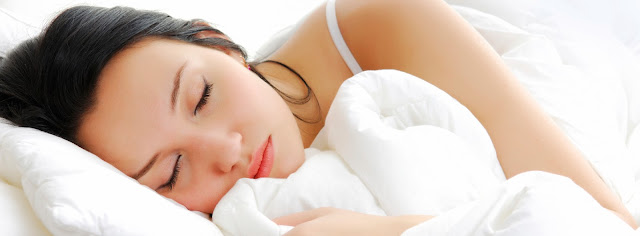10 habits for better sleep to get sweet dream !!!
 |
| source image by: mo-am.com |
You're following in some admirable people's footsteps. It turns out we're a country of awful sleepers as well as a country that stresses ceaselessly over our rest.
Reviews demonstrate 33% of us experience difficulty dozing, and sleep deprivation is the UK's most normal emotional wellness objection. Yet while a normal night's kip isn't so unique in relation to 50 years prior (around seven hours), we're so occupied with besieging our brains with data at painfully inconvenient times that our rest may be more divided than past eras.
The uplifting news is, we can all figure out how to be better sleepers. Here are 10 stages you can take for a tranquil night…
1.STOP WORRYING
Uneasiness is the foe of good rest. Stressing that you're not getting enough will really stop you resting and make an endless loop that is difficult to break.
"The perspective that we all need eight hours is babble," says Professor Jim Horne, organizer of the Sleep Research Center at Loughborough University. Specialists say the vast majority of us can chop down to six hours without anguish significant thump on wellbeing impacts.
The "incendiary markers" that raise your danger of sickness tend not to kick in until you get beneath six hours for long stretches.
2.HAVE A ROUTINE
We uphold a sleep time routine for our kids – milk, shower, story, nestle – yet what number of us have one ourselves? We ought to. Those 60 to an hour and a half before bed are urgent to the length and nature of rest.
The point is to slow down and dispose of what therapists call the "brain prattle" of the day. Turn off screens an hour prior to rest, make a schedule so stressing over tomorrow's undertakings won't wake you later, have a shower, a little nibble or warm drink (yet not a feast), and keep the room dull, tranquil and disorder free.
3.WATCH WHAT YOU EAT
What you eat big affects your rest – and not simply in the last couple of hours before bed.
Shockingly, breakfast is truly critical. In the event that you eat inside of 30 minutes of getting up, examination demonstrates to you will create a greater amount of the rest hormone melatonin amid the day.
"Incorporate protein with your breakfast, as the amino acids make the hormones that will send you to rest later," prompts Dr Nerina Ramlakhan, writer of Tired But Wired (£11.49, expressbooks.co.uk).
Caffeine from espresso, chocolate or cola isn't a smart thought toward the evening – and caffeine affectability increments with age. Drinking liquor late at night is terrible as well: it may send you to rest rapidly, yet parts rest while the body metabolizes it.
4. TRY AND ELECTRONIC SUNDOWN
Cell phones, tablets and the moment, 24-hour availability they give can be a calamity to rest if utilized late as a part of the night. We're over-burdening our mind with an excess of data that it can't prepare before rest and research demonstrates the pale blue light from screens can defer the body's creation of melatonin.
"Ask yourself, is it truly vital to check your messages at 10pm?" says Dr Ramlakhan. "Our telephones are astonishing gadgets however we have to make sound limits." She exhorts killing your tablet/PC and putting your telephone ground floor an hour prior to rest and don't utilize it as a wake up timer.
Television is OK before rest, as it doesn't animate the mind to such an extent.
5.TUNE OUT TWICE A DAY
A few studies say only 10 minutes' reflection a day will give your body as much rest as the last period of evening time rest. That is on account of when you block out, your mind has the opportunity to combine and revive.
There are loads of free applications that instruct an every day reflection, however in the event that that feels like a stage too far, attempt different approaches to reboot. "Strolling does it for me," says Professor Stephen Palmer, executive of the Center for Stress Management.
"It's a period to switch off, listen and reflect."
6. HAVE A WIDE-AWAKE PLAN
It's consummately ordinary to wake up 10 to 15 times each night, so have an arrangement to abstain from lying there and worrying. Make an effort not to check the time in light of the fact that that brings you once more into full cognizance (and makes you stress what a limited number of hours there are until getting up time).
Stay as drowsy as could be expected under the circumstances and don't put lights on, regardless of the possibility that you need to go to the lavatory. Get settled and convey your consideration regarding you're breathing, prompts Dr Ramlakhan.
Inhale profoundly into your paunch and take after your exhalations. At that point gradually number every breath. "Do a reversal through the earlier day and review each little positive thing that happened – a hot shower, a some tea and so forth. It's a shockingly powerful system."
7. GET A SHORT NAP
A short evening snooze can really help your evening time rest. However, set your alert (anything more than 20 minutes may include profound rest, which could upset your night).
Truth be told, you don't have to rest to get the advantages: only five to 20 minutes of daydreaming with your eyes shut is helpful, regardless of the possibility that it's face down at your work area.
Studies demonstrate a 15-moment rest amid the evening plunge (1 to 3pm) is in the same class as developing evening time rest by 60 minutes.
8. EXERCISE MIND AND BODY
Some sort of physical effort consistently is imperative to prepared you for rest – 20 to 25 minutes is sufficient.
In any case, don't do it inside of three hours of going to bed, as it will keep your body temperature too high to rest. Get 30 minutes a day outside as light helps melatonin generation.
Staying socially drew in and keeping the brain occupied are likewise key, says Professor Horne. In one study, he found that it wasn't the ocean air that made individuals tired at the coastline yet the mental exertion of taking in new sights and sounds.
The recently resigned frequently report sleep deprivation, presumably in light of the fact that they're not getting enough mental incitement in the day.
9. SORT OUT MEDICAL ISSUES
As we age, rest turns out to be more divided, regularly in view of troublesome physical grumblings, for example, torment from joint pain or menopausal hot flushes.
Here and there it's the medications used to treat ailments that avoid rest. Beta-blockers, diuretics and chilly cures are all normal guilty parties.
Wheezing is a tremendous issue: twice the same number of ladies as men visit the specialist for a sleeping disorder, likely on the grounds that their accomplice is waking them. On the off chance that yours is a snorer, there's a chance they have rest apnoea (60 for every penny of more than 65s have it).
This can be unsafe as those influenced quit relaxing for brief periods, so request that they see their GP and get alluded to a rest facility so it can be viably treated.
10.CAN'T SLEEP? ACCEPT IT
On the off chance that you can't get the chance to rest or you wake up right on time, tolerating the issue can resolve it. Let yourself know your body is as yet resting, you'll have the capacity to adapt the following day regardless of the possibility that you can't rest, and attempt to appreciate the stillness of the night.
"Esteem that extra time you have instead of feeling you've been victimized," says autonomous rest master Dr Neil Stanley. “You can’t chase sleep – you have to let sleep find you.”







